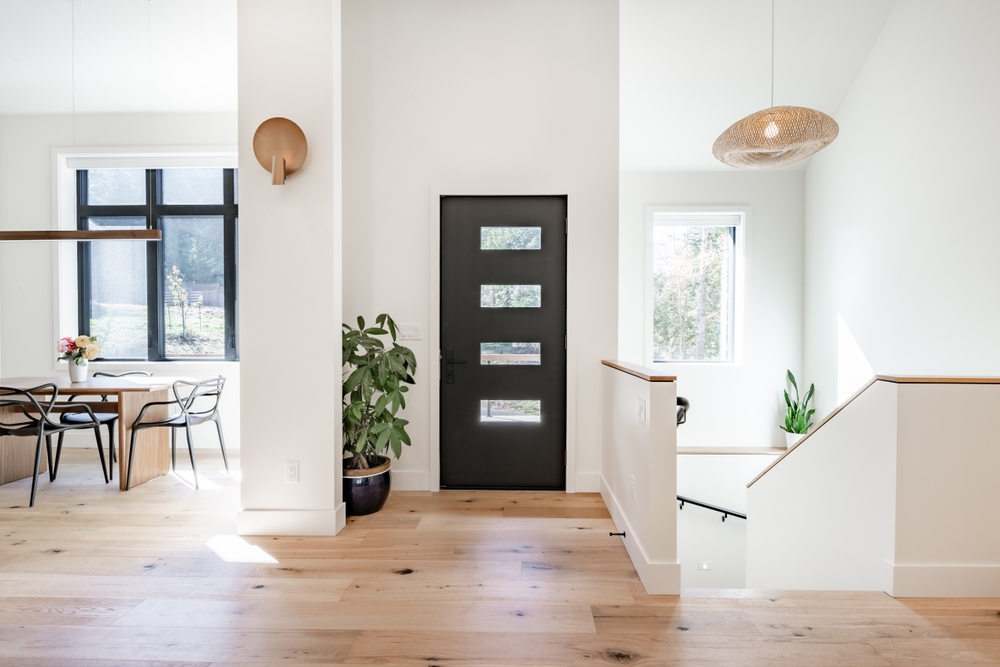

When considering home improvements, the focus often falls on aesthetics and functionality. However, there’s another crucial aspect that can significantly impact both your wallet and the environment: energy efficiency. Among the various flooring options available, hardwood floors are emerging as a sustainable choice that offers both economic and ecological benefits. In this article, we’ll explore how hardwood flooring can contribute to energy efficiency and whether it also adds value to your home.
Is Hardwood Flooring Energy Efficient?
Hardwood Flooring and Energy Efficiency
Energy efficiency in the context of flooring involves how well the material can contribute to maintaining a stable indoor temperature. Hardwood floors, made from natural timber, offer several benefits in this regard. Unlike some synthetic flooring options, hardwood has natural insulating properties that help in temperature regulation.
- Thermal Insulation Properties: Hardwood floors provide excellent thermal insulation. The natural fibers of wood have insulating properties that help to maintain a steady indoor temperature. During winter, hardwood floors help to keep warmth in, reducing the need for excessive heating. Conversely, during the summer, they can help keep the indoor space cooler by reflecting heat rather than absorbing it.
- Low Heat Conduction: Wood is a poor conductor of heat, which means it doesn’t easily transfer heat between the room and the subfloor. This characteristic helps to prevent heat loss through the floor, making your heating system more efficient. In essence, hardwood flooring can help reduce the amount of energy needed to heat or cool your home.
- Sustainable Manufacturing: Many hardwood floors are produced from sustainably managed forests. This means that for every tree cut down, new trees are planted, which helps to maintain a balance in the ecosystem. Sustainable forestry practices contribute to lower carbon emissions compared to other flooring materials that might require more energy-intensive manufacturing processes.
The Impact on Your Energy Bills
Investing in hardwood flooring can lead to noticeable reductions in your energy bills. The natural insulating properties of hardwood help to maintain a consistent indoor temperature, which means your heating and cooling systems don’t have to work as hard. This efficiency translates into lower energy consumption and, consequently, lower utility bills.
Additionally, hardwood floors are durable and can last for decades with proper care. This longevity means you won’t need to replace them as often, which reduces the overall energy footprint associated with frequent replacements and manufacturing processes.
Does Hardwood Flooring Increase Home Value?
Enhancing Aesthetic Appeal and Functionality
One of the most significant benefits of hardwood flooring is its potential to increase the value of your home. Hardwood floors are highly sought after for their aesthetic appeal and durability. They add a touch of elegance and sophistication that can enhance the overall look and feel of your home.
- Timeless Appeal: Hardwood floors have a classic and timeless appeal that never goes out of style. Unlike some flooring options that may become outdated quickly, hardwood floors maintain their attractiveness over time. This enduring appeal makes your home more appealing to potential buyers, which can lead to a higher resale value.
- Increased Home Value: Studies have shown that homes with hardwood floors often sell for a higher price than those with other types of flooring. Hardwood floors are viewed as a premium feature, and many buyers are willing to pay a premium for a home that already has them installed. This means that investing in hardwood flooring can be a wise financial decision if you plan to sell your home in the future.
- Versatility and Compatibility: Hardwood floors are versatile and can complement a wide range of interior styles, from traditional to modern. This versatility makes them a popular choice for homeowners looking to enhance their home’s overall aesthetic. Additionally, hardwood floors are compatible with various types of interior design, making them a valuable investment for those looking to increase their home’s appeal.
Practical Considerations
When considering hardwood flooring as an investment in your home’s value, it’s important to choose high-quality materials and professional installation. Proper maintenance is also crucial to ensure that your hardwood floors continue to look their best for years to come. Regular cleaning and periodic refinishing can help preserve the beauty and functionality of your hardwood floors.
Sustainable Living: The Environmental Benefits of Hardwood Floors
Eco-Friendly Aspects of Hardwood Flooring
In addition to their energy efficiency and potential to increase home value, hardwood floors offer several environmental benefits. Choosing hardwood flooring can be a step toward a more sustainable and eco-friendly lifestyle.
- Renewable Resource: Hardwood comes from trees, which are a renewable resource when managed responsibly. Sustainable forestry practices ensure that trees are harvested in a way that maintains the health of the forest ecosystem. This approach helps to reduce the environmental impact of flooring production and supports biodiversity.
- Biodegradable and Recyclable: Unlike some synthetic flooring materials, hardwood floors are biodegradable. At the end of their lifespan, they can be recycled or repurposed, reducing waste and minimizing their impact on landfills. Additionally, wood flooring can be refinished multiple times, extending its lifespan and reducing the need for replacement.
- Lower Carbon Footprint: The production of hardwood floors typically results in a lower carbon footprint compared to other flooring materials. This is due to the fact that wood sequesters carbon dioxide during its growth, and sustainably managed forests help to offset carbon emissions. By choosing hardwood flooring, you’re making a choice that supports environmental sustainability.
Conclusion
Hardwood flooring is not only a beautiful and timeless choice for your home but also an environmentally friendly and energy-efficient option. Its natural insulating properties can help reduce your energy bills, and its durability ensures that it remains a valuable asset for years to come. Moreover, hardwood floors can significantly enhance the value of your home, making them a smart investment for both aesthetic and financial reasons.
By choosing hardwood flooring, you’re making a conscious decision to support sustainability and reduce your environmental impact. With its blend of practicality, elegance, and eco-friendliness, hardwood flooring proves to be a compelling choice for homeowners looking to enhance their living spaces while contributing positively to the planet.
Need Home Builders in Williamsburg, VA?
Welcome to Healthy Communities in beautiful Williamsburg, Virginia! We are custom home builders with a focus on efficient and green building. We believe that good home design can support, enrich, and enhance your life, so we engage you as the buyer in the design process. Together, we can create a tailored design that provides an extraordinary living experience. Our homes are engineered to be energy efficient, utilizing green building products, value-engineered construction, enhanced indoor air quality, and solar power to help offset the electric utility cost for heating, cooling, water heating, lights, and appliances. Give us a call to get started today!
